What level is your area in?published at 15:30 BST 15 June 2021
Many Scottish council areas saw restrictions ease earlier this month, but some remained at the same level.
Read MoreNicola Sturgeon says Glasgow will move from level three to level two restrictions from Saturday.
13 other council areas, including Edinburgh, will be held in level two.
Ms Sturgeon says the number of cases suggest some of these areas should be in level three - but hospitalisations are not increasing.
Many other council areas will move to level one, with the islands already in level one going to level zero.
The Scottish government had originally wanted the whole country to move to level one next week.
No Covid-related deaths have been recorded in Scotland in the past 24 hours.
Ms Sturgeon says there is evidence the link between cases and serious illness and death is weakening thanks to vaccine.
The first minister says the outlook is positive, although there may potentially be some "bumps" because of new variant.
BBC Scotland News
Many Scottish council areas saw restrictions ease earlier this month, but some remained at the same level.
Read MoreThat's all from the live page today. Join us again next time.
Allow X content?
This article contains content provided by X. We ask for your permission before anything is loaded, as they may be using cookies and other technologies. You may want to read X’s cookie policy, external and privacy policy, external before accepting. To view this content choose ‘accept and continue’.
Allow X content?
This article contains content provided by X. We ask for your permission before anything is loaded, as they may be using cookies and other technologies. You may want to read X’s cookie policy, external and privacy policy, external before accepting. To view this content choose ‘accept and continue’.
Allow X content?
This article contains content provided by X. We ask for your permission before anything is loaded, as they may be using cookies and other technologies. You may want to read X’s cookie policy, external and privacy policy, external before accepting. To view this content choose ‘accept and continue’.
Allow X content?
This article contains content provided by X. We ask for your permission before anything is loaded, as they may be using cookies and other technologies. You may want to read X’s cookie policy, external and privacy policy, external before accepting. To view this content choose ‘accept and continue’.
 Jamie McIvor
Jamie McIvor
BBC Scotland News Correspondent
Keeping some parts of the mainland at level two while others remain at level one is a departure from the Scottish government's original plan.
But the differences between level two and level one are much less profound than the differences between level two and level three.
Level one areas have more freedoms - more people can gather outdoors or in a restaurant and businesses such as soft play centres can reopen.
But fundamental personal liberties, such as the freedom to socialise in a friend's home, returned at level two.
The council areas moving to level one are generally large and well-defined - for instance Highland, Argyll and Bute, the councils in the former Grampian region, the former Tayside region outside Dundee, Dumfries and Galloway and Scottish Borders.
But there are also examples in the central belt where a short journey will lead from one level to another - for instance between Renfrewshire (level two) and Inverclyde (level one).
The challenge may be in ensuring people always realise what they can and cannot do at particular levels.
Glasgow City has moved to level two restrictions, where it joins 13 other council areas which have been held at that level.
In all, there are 2.96 million people in the council areas which will be at level two from Saturday.
Fifteen council areas will be in level one from Saturday. That covers about 2.4 million people.
Shetland, Orkney and the Western Isles - covering about 72,000 people - plus some smaller islands are moving down to level zero.
Allow X content?
This article contains content provided by X. We ask for your permission before anything is loaded, as they may be using cookies and other technologies. You may want to read X’s cookie policy, external and privacy policy, external before accepting. To view this content choose ‘accept and continue’.
Allow X content?
This article contains content provided by X. We ask for your permission before anything is loaded, as they may be using cookies and other technologies. You may want to read X’s cookie policy, external and privacy policy, external before accepting. To view this content choose ‘accept and continue’.
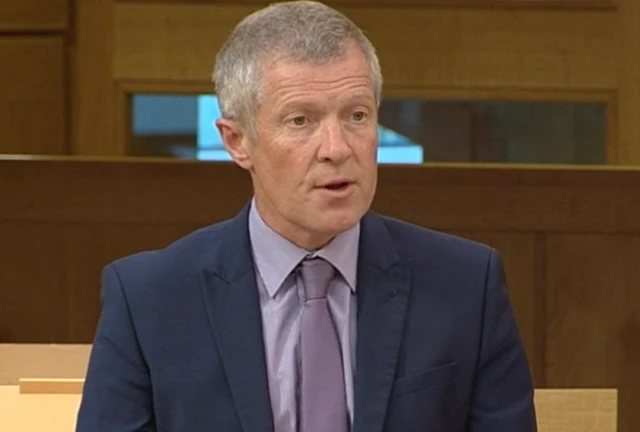
Scottish Lib Dem leader Willie Rennie says he is concerned about the "lack of services" for adults with special needs.
One family told him they felt "completely let down and abandoned" and he asks if we can open pubs and football fan zones, should the Scottish government be restarting community services for those adults.
The first minister says she thinks we are in a phase where "more services can get back to normal".
She says she understands why people might compare such services to events but there are "often very different issues at play".
Part of the current caution, she says, is to prevent the NHS having to cope with thousands of Covid patients - though she says adults with special needs are "top of the list of priorities".
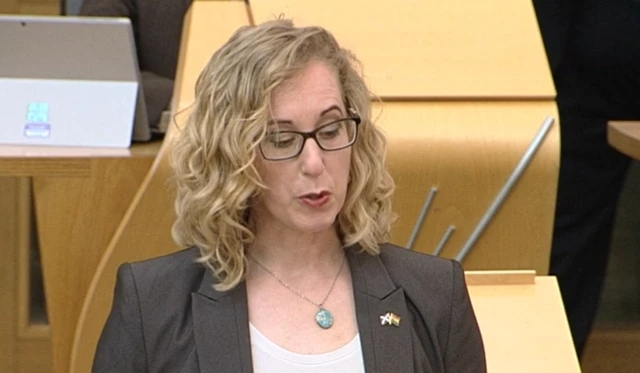
The Scottish Greens' Lorna Slater asks the first minister to consider reinstating the eviction ban, which has now been "swept away".
She points out some people have lost their jobs with little hope of finding another, and that others have been on furlough where they are paid 80% of what may already be a low wage.
Nicola Sturgeon says she will keep under consideration a ban on eviction, and points to a package of measures available to support those who are struggling financially because of the pandemic.
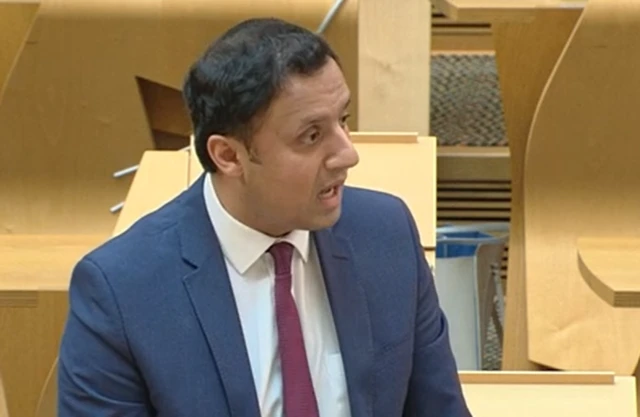
Scottish Labour leader Anas Sarwar focuses on protocol for Covid "hotspots", pointing out that Glasgow has the second lowest level of vaccine uptake and there have been large-scale missed appointments.
He asks what investigations are being made into this, how the Scottish government can improve vaccine uptake and when vaccination centres for over 18s will be launched.
Ms Sturgeon acknowledges his points as "reasonable and legitimate", saying all the steps he mentioned are being taken in Glasgow.
She says the government is preparing a "toolkit" to make learning from Glasgow's experience available to other health boards.
As for vaccinations, she says supply continues to be a "big constraint", particularly supply of the Pfizer jag which is being used for younger age groups.
She ends by saying there will be a "big emphasis" on getting people their second doses in the coming weeks.
Allow X content?
This article contains content provided by X. We ask for your permission before anything is loaded, as they may be using cookies and other technologies. You may want to read X’s cookie policy, external and privacy policy, external before accepting. To view this content choose ‘accept and continue’.
Allow X content?
This article contains content provided by X. We ask for your permission before anything is loaded, as they may be using cookies and other technologies. You may want to read X’s cookie policy, external and privacy policy, external before accepting. To view this content choose ‘accept and continue’.
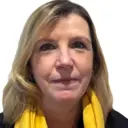 Lisa Summers
Lisa Summers
BBC Scotland Health Correspondent
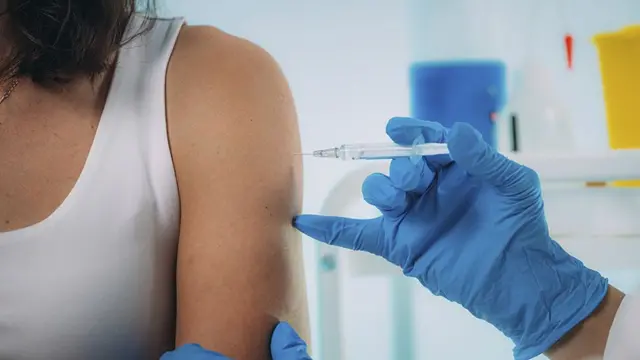 Image source, Getty Images
Image source, Getty ImagesIt's no surprise that many parts of Scotland are being held in level two. There have been warnings from scientists across the UK that caution is required as case numbers go up and it would be out of character for Nicola Sturgeon not to tread carefully.
Some experts believe what we are seeing in Scotland is the start of a third wave. The question is, how big will it be?
It looks like vaccines are holding up against the new, more transmissible, Indian variant. The proportion of people who test positive and go on to need hospital treatment appears to be far less than it was in the autumn of last year.
Scientists say it's a very good sign that the vaccine is breaking the link between cases and hospitalisations but that efforts should be stepped up to maximise protection by getting people to come forward for a first or second jag.
There is also a nervousness that too big an increase in Covid patients in hospital could stall any progress the NHS is making on catching up on the backlog of routine work.
That is why the decision has been made to slow down the easing of restrictions.
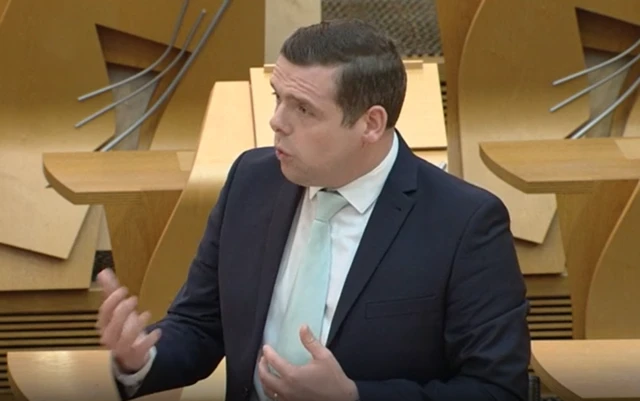
Douglas Ross urges the first minister to consider more targeted interventions, rather than council-wide restrictions.
The Conservative leader says more weight should be given to the restrictions the impact has on businesses and people's mental health.
He asks the first minister to do more to speed up the vaccination rollout and to support businesses struggling under the restrictions.
Ms Sturgeon says she doesn't pretend her decisions have been perfect but she believes she has been proved right in the past when she has erred on the side of caution.
While the road ahead will be "bumpy", Ms Sturgeon says, "no part of the country is going backwards".
She says the vaccine is "changing the game" and that means "we can be optimistic about our chances of much more normality over this summer and beyond".
Work will be published on more detailed work on life beyond level zero, she adds.
The first minister concludes her speech by urging people to take a lateral flow test twice a week which can be ordered online. , external
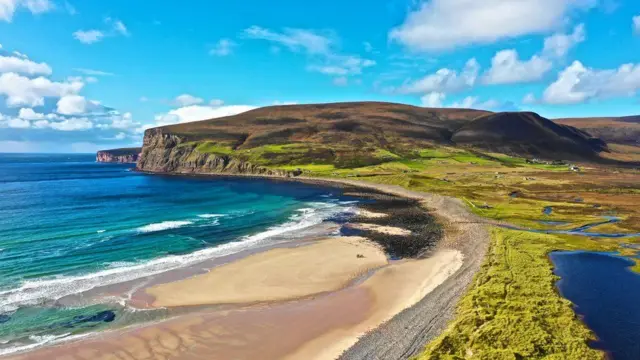 Image source, Colin Keldie
Image source, Colin KeldieOrkney is one of the islands moving to level 0
Shetland, Orkney, the Western Isles and a number of small, remote islands will move from level one to level zero from 00:01 on Saturday, Ms Sturgeon says.
She said these communities are continuing to report extremely low numbers of new cases, and in many cases, a higher than average proportion of adults have received both doses of vaccine.
For example, she said this means that people can meet indoors in groups of up to four households. And local licensing laws apply to hospitality venues, as there is no set nationwide closing time.
It will also mean the maximum attendance at weddings and funerals will be 200 (rather than 100 at level one, and 50 at level two).
Ms Sturgeon adds that anyone travelling to any of the islands should use a lateral flow test before doing so, to minimise the risk of taking the virus to any of these communities.
On the areas moving to level one, the first minister says cases are at "very low levels" or are "broadly stable".
She says these are related to "clusters that are being managed".
The main changes are that eight people from three households can meet indoors, 12 people from 12 households can meet outdoors, 100 people can attend weddings and funerals and soft play and funfairs can reopen.
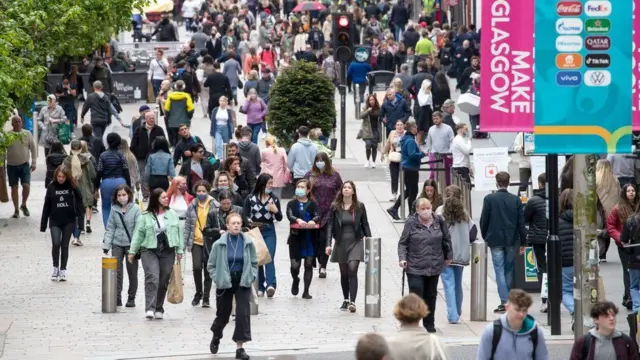 Image source, PA Media
Image source, PA MediaNicola Sturgeon says Glasgow moving down to level two is "significant" after a "really tough" period over the last few months.
"As someone who lives in Glasgow I know it will make a huge difference to the quality of life," she says.
Ms Sturgeon adds that although stable and starting to decline in the city, cases remain high, and urges people to continue to be cautious.
She says that although indoor meetings will be allowed in Glasgow, "outdoor meetings are better" - and this applies to the whole of Scotland.
The following areas will move to level one from one minute past midnight on Saturday:
These are:
Ms Sturgeon adds that Scotland’s R number is "almost certainly" above one, which means the epidemic is growing here.
She adds that "many public health experts are warning that the UK could now be at the start of a third wave of the virus".
She says the third wave will be different as confidence grows that vaccines are effective. "We now have evidence that the link between cases and serious illness, hospitalisation and deaths appears to be weakening," she says.
"For example, since January in Scotland, the proportion of new cases which lead to hospital admission has reduced on current estimates from 10% to 5%."
The first minister adds that the length of time people spend in hospital has been reducing "quite markedly" since the new year.
She adds that this suggests that next phase of the pandemic will mean restrictions don't need to be as tough.
But she says this won't be the case until a bigger chunk of the population is fully vaccinated.
She warned that if cases continue to rise it could lead to "severe pressure" on the NHS as it tries to restart non-Covid treatment.
The first minister says case numbers are still high in some areas of Scotland and they will be held at level two for a further period.
In addition to Glasgow, these areas are:
Glasgow City will move to level two from midnight on Friday into Saturday (5 June).
The first minister says the situation in Glasgow appears to be stabilising.
Ms Sturgeon says cases in Glasgow remain high so people need to continue to be cautious.